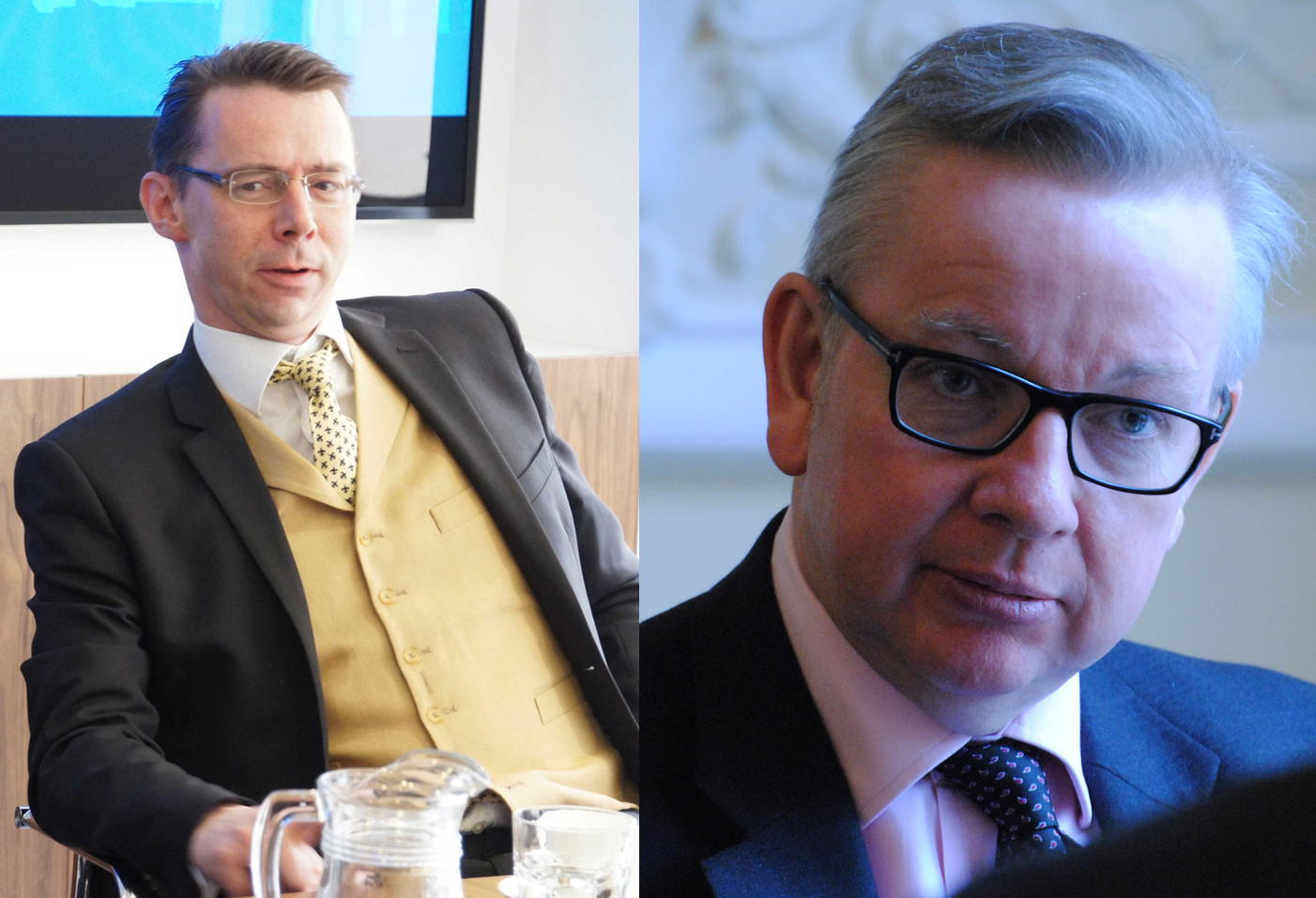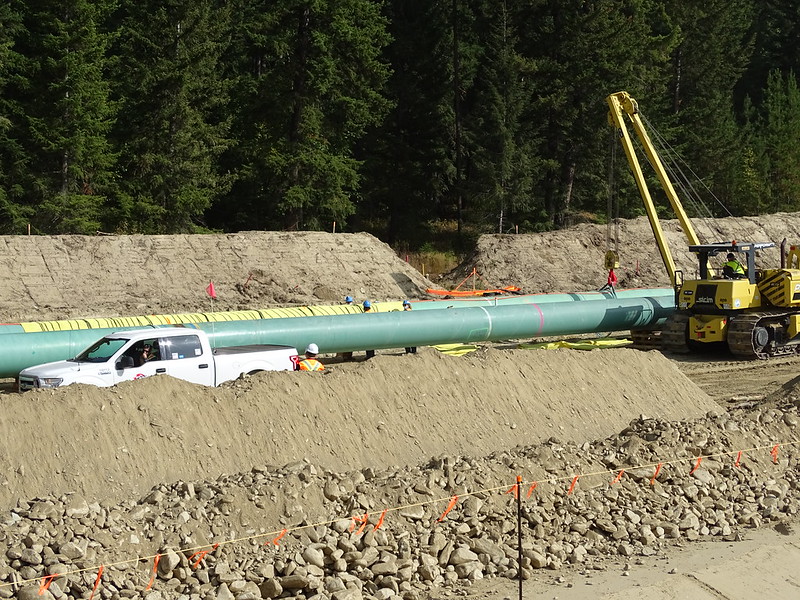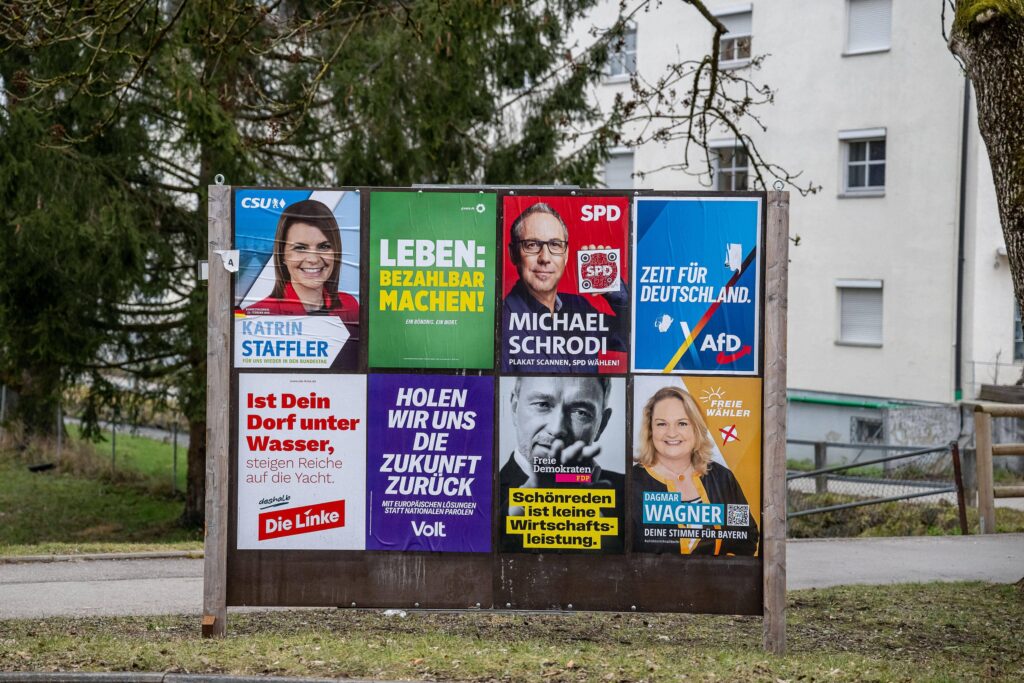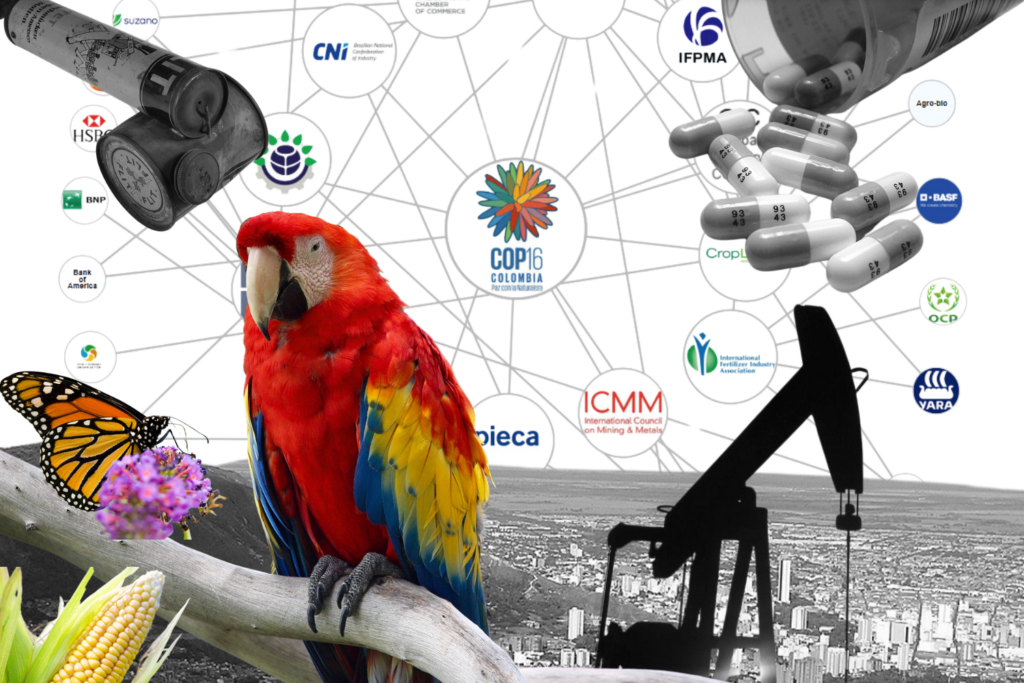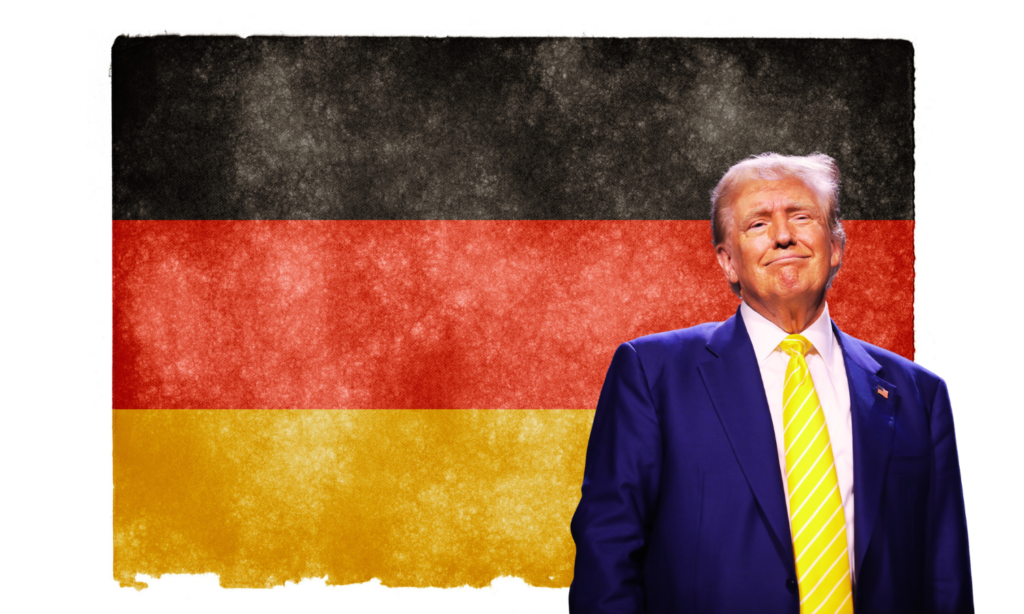A thinktank has been helping climate science deniers push their agenda on government ministers through its lobbying activities for a UK–US free trade deal, which could see the UK import products such as genetically modified (GM) beef and chlorinated chicken, an undercover investigation by Greenpeace’s Unearthed published in the Guardian reveals.
It exposed how the free-market thinktank the Institute for Economic Affairs is playing a pivotal role in enabling behind-the-scene discussions about a US–UK trade deal while advocating for a hard-Brexit with cabinet ministers.
The Unearthed investigation and a response published by the IEA, seen by DeSmog UK, also reveals details of how climate science deniers, including Tory hereditary peer and coal baron Matt Ridley and DUP MP Sammy Wilson, advocate for deregulation — including on food and environmental standards — as part of the IEA’s push for a hard-Brexit and stronger trans-Atlantic commercial links.
The document notifies the IEA of the material obtained by Unearthed and includes the IEA’s responses in full to the journalists’ request for comment. The IEA published its responses in advance of the Guardian investigation going live.
In a blog for the IEA, its director general Mark Littlewood denied that IEA donors were paying “cash for access” when supporting the organisation. He added that the IEA showed it was ”willing to talk quite openly about our ideas and business approach with a potential supporter” and that it “relish the opportunity to discuss ideas with policymakers and politicians”.
The Climate Science ‘Lukewarmer’: Matt Ridley
The Unearthed investigation reveals proposals from the IEA for a report into post-Brexit farming in the UK. It would “focus on how changes in technology, genomics and chemicals could benefit the British countryside”, according to the Guardian report.
A proposal for the report suggets that Matt Ridley — a Conservative hereditary peer in the British House of Lords and an advisor to the climate science denier group the Global Warming Policy Foundation (GWPF), run by former chancellor Nigel Lawson — would be the author. The IEA described Ridley as “a well known commentator on genetics, artificial intelligence and innovation, including in agriculture”.
Littlewood was filmed saying Ridley had discussed the report with Gove, who he said was enthusiastic about getting the ideas into the “bloodstream of Defra”. He also suggested the funder would be able to attend a private dinner with its author Ridley and potentially with Gove, the environment secretary, or another minister.
Littlewood was also recorded saying potential US donors could fund and shape “substantial content” of research commissioned by the thinktank.
The IEA stated that Ridley has not been paid by the IEA to write the report but that he had “discussed this project informally with Michael Gove [environmental secretary] who we [the IEA] understand has welcomed the idea as a useful contribution to the agricultural debate”. Ridley’s conversation with Gove was confirmed by Defra to the Guardian.
The IEA said that it made no attempt to influence Ridley’s report and that Gove has “quite clearly” taken a different stance to the IEA’s on agricultural policies post-Brexit. Last year, Gove declared that the UK would back out of any trade deal that would require lowering standards to allow for imports of chlorinated chickens from the US.
A Times columnist, Ridley has used the issue of agricultural policy post-Brexit to push his agenda of environmental deregulation — one which he shares with the IEA.
In its responses to UnEarthed, the IEA says it has long adopted the view that “precautionary principle can be counterproductive and environmentally harmful” and that Ridley has repeatedly argued that it “stifled innovation that could have reduced pesticide use”.
The IEA’s push for weaker environmental regulations to enable free trade with the US comes as a report by NGO Global Witness found that, in 2017, agribusiness has overtaken mining as the industry most associated with attacks against environmental activists around the world.
Ridley told Unearthed that the report was about innovation in agriculture rather than agriculture after Brexit and said its aim was not to influence Defra officials but to “inform all debate on the topic.”
Ridley is not the only climate science denier to work closely with the IEA.
Responding to the Unearthed investigation, the thinktank boasted of working with “groups and individuals from across the political spectrum” and named DUP MP Sammy Wilson as a speaker at a recent IEA event.
Wilson is one of the DUP’s most controversial figures when it comes to climate change. He has previously said that human caused climate change is a “gigantic con” and an “hysterical semi-religion”, and welcomed US President Donald Trump’s decision to pull out of “the totally flawed and pointless” Paris Agreement.
The revelations come just days after DeSmog UK reported on accusations by a former associate of Vote Leave that nine thinktanks and campaign groups, including the IEA, were holding regular meetings in an office near Westminster at 55 Tufton Street to “agree on a single set of right-wing talking points” and “securing more exposure to the public” on Brexit.
The GWPF, which is also based at 55 Tufton Street, was named as one of the campaign groups taking part in the meetings.
The Enabler: Shanker Singham
The Unearthed investigation said US lobbyist Shanker Singham, who now works for the IEA having previously held a position at another London-based think tank, the Legatum Institute, arranged for members of a US thinktank with an interest in reducing regulations around chlorinated chicken to meet UK politicians.
Previous reports have suggested Singham has unprecedented access to UK ministers including environment secretary Michael Gove, international trade secretary Liam Fox and former foreign secretary Boris Johnson. The Unearthed investigation adds further evidence of this.
Unearthed have recordings of IEA director Littlewood claiming Singham and his team speak with Gove “every three or four days, along with David Davis, Boris Johnson, Liam Fox”.
It claims Singham organised for Michael Carnuccio, CEO of the E Foundation, an Oklahoma-based thinktank, to meet former Brexit minister Steve Baker and other members of the influential alliance of Euro-skeptic Tory MPs, the European Research Group, including Jacob Rees-Mogg.
The Unearthed investigation claims Carnuccio compared Singham to George Clooney’s well-connected “fixer” character in the movie Michael Clayton: “Shanker is like that but for trade and economics and everything else, they all just seem to call him or want to talk to him to, like, figure out how to get things done.”
A spokesperson for Baker rejected the accusation that the meetings were improper. A spokeserson for Gove claimed he would “never be swayed” on weakening environmental regulations around chlorinated chicken.
The response published by the IEA does not refute that Singham is being used as an go-between for the IEA and its donors and politicians and government officials.
Asked to comment Singham’s offer to introduce funders to UK politicians, the IEA did not deny the incident but responded that “there is nothing exclusive about the work the IEA is doing” and “nothing untoward about think tanks having a collaborative approach with politicians.”
It added that it had “introduced MPs and civil servants to experts from a range of relevant areas including customs operations and trade negotiations” and did not act in donors’ interest “except to the extent that they have an interest in pursuing free trade”.
Funding
Unearthed also revealed that the IEA — which is famously secretive about its funders — takes money from fossil fuel companies and gambling firms.
Littlewood is recorded saying BP employees regulalry attend IEA events, and meet with influential politicians.
The IEA acknowledged that BP has been supporting the think tank’s work every year since 1967.
It did not refute the Unearthed’s claim that BP lobbyists attend more than half of the IEA dinners and events and were using them “to raise commercial issues with ministers including environmental standards, safety standards and tax”.
The IEA is now facing two investigations: One into its charitable status, and another into whether it should register as a lobbyist.
It is currently registered as a charity, allowing the group to claim tax breaks on its revenue. Charity regulations state “an organisation will not be charitable if its purposes are political”.
Image Credit: Cicero Group/Flickr/CC BY 2.0 and Chatham House/Flickr/CC BY 2.0
Subscribe to our newsletter
Stay up to date with DeSmog news and alerts


